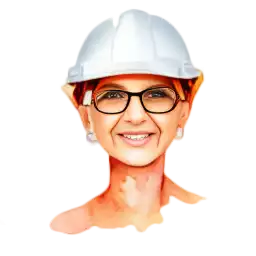How thick should be the wear layer of PVC flooring for bathrooms?
What is your experience with PVC flooring? I would like to install designer flooring in my bathroom.
As I have read, one online supplier offers the desired flooring with a 0.3 mm wear layer. How important is a thick wear layer?
Answers
Pay attention to the information in the manufacturers' data sheets!
All manufacturers of designer PVC flooring refer to the wear layer. The more the product is worn, the stronger the wear layer should be.
By the way, a wear layer of 0.3 mm is quite sufficient for the bathroom. However, care must be taken to ensure that water does not stand so that it can not get under the coating through the many seams and cause damage there.
Given that PVC flooring is only 1-3 mm thick, a 0.3 mm "wear layer" would not be insufficient.
However, a wear layer would also be a misnomer. PVC coatings are made up of several layers, the top layer is just a clear top layer.
The term "wear layers" is used, for example, for laminate wood or cork flooring, where the wear layer consists of the material that gave the flooring its name.
Finished wood parquet with a 1mm wear layer is simply inferior to finished parquet with a 4mm wear layer (the latter is more resistant to abrasion, can be sanded, etc.) – but for PVC flooring, the term "wear layer" is rather insignificant.
More specifically, manufacturers talk about wear layers for CV (cushioned vinyl) flooring. They are multi-layered and have what's called a wear layer on top of a patterned middle layer.
Single-layer PVC flooring only has a design seal; however, it is also often referred to as a wear layer.
The longevity of PVC flooring depends not only on the top, patterned wear layer, but also on the underlayment. The bottom layer, usually PVC foam, is almost more important to the longevity of a PVC multilayer flooring.
Yes, we also have PVC flooring in our kitchen. Basically, it's not bad either, but it's getting older. What I especially like about this PVC floor is that it can be cleaned quickly. Especially if you have kids in the house, the strain on them is significant. PVC flooring is also much cheaper than laminate or hardwood flooring.
Okay, we have PVC flooring in our kitchen. I think it's good in the kitchen, especially when there are kids in the family, then more dirt accumulates.
There are also PVC floors, which, like laminate, deceptively imitate natural materials. PVC is completely insensitive to moisture; laminate can be ruined by improper plastering techniques.
It is true that PVC consists mainly of toxic components; however, this is not a problem during use, but it is a problem during disposal and in case of fire.






